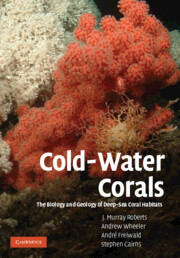8 - Impacts and conservation
Published online by Cambridge University Press: 23 December 2009
Summary
Know nature's children all divide her care;The fur that warms a monarch warm'd a bear.While Man exclaims, ‘See all things for my use!’‘See man for mine!’ replies a pamper'd goose:And just as short of reason he must fall,Who thinks all made for one, not one for all.
An Essay on Man Alexander Pope (1734)The ecosystems at the bottom of the deep sea are out of sight beneath the impenetrable grey of the waves. Any marine ecosystem, especially those of the deep sea, are remote from people's daily experience and may therefore be of little general interest. One of the greatest challenges facing deep-sea conservation is raising awareness of the hidden diversity and vulnerability of this, the largest and least-known environment on Earth. What is out of sight can all too often also be out of mind, but public perception of the threats facing some marine ecosystems, such as shallow-water tropical coral reefs, is relatively high – they are highly visual and popular holiday destinations for many people. But although out of sight and sometimes thousands of miles from the nearest land, cold-water corals and other deep-sea benthic ecosystems have been affected by human activity. Many, if not most, marine ecosystems have been affected by fishing and researchers regularly report deep-water trawl damage to cold-water coral and sponge habitats. Here we will describe present-day impacts, consider emerging threats and review what can and is being done to ensure their conservation.
Impacts
Fishing
Around the world, marine fisheries are declining.
- Type
- Chapter
- Information
- Cold-Water CoralsThe Biology and Geology of Deep-Sea Coral Habitats, pp. 237 - 262Publisher: Cambridge University PressPrint publication year: 2009
- 1
- Cited by



